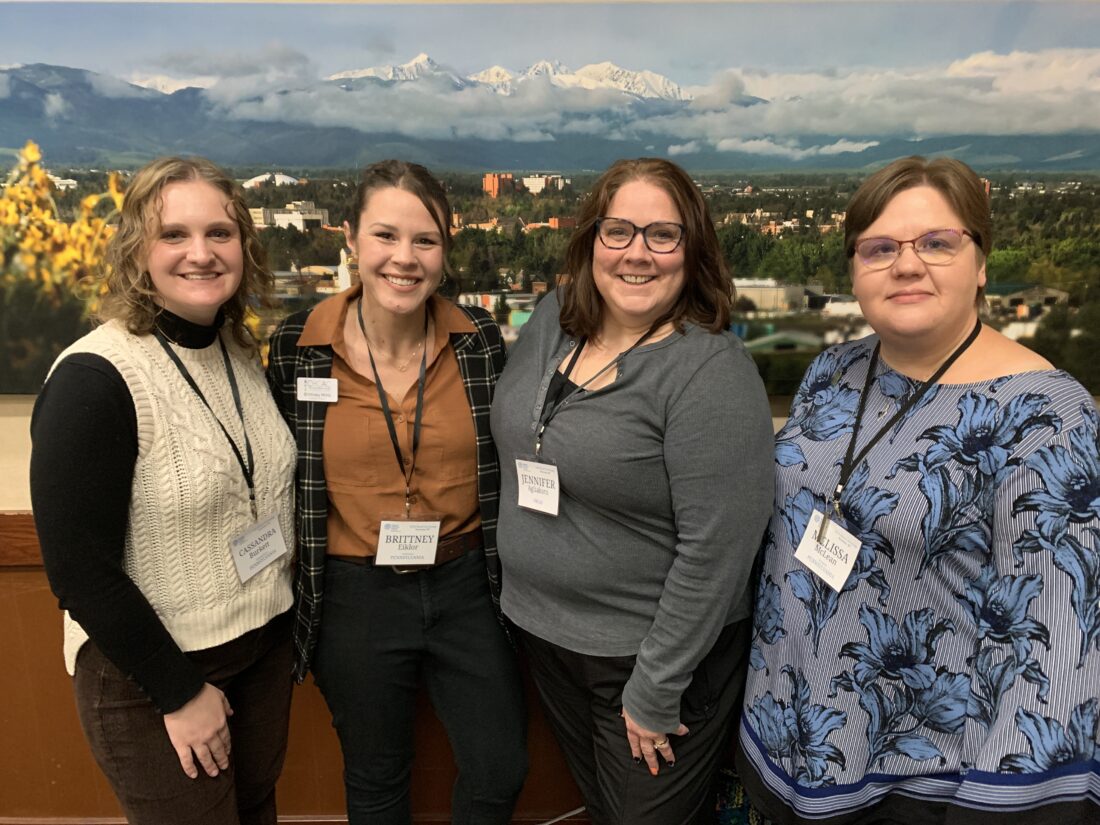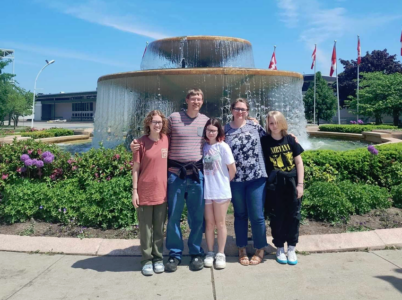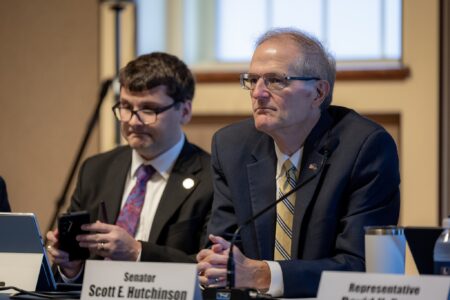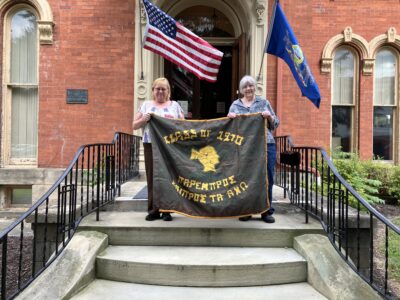Child Advocacy Center to host human trafficking seminar

Photo submitted to the Times Observer Melissa McLean, Warren County Children’s Advocacy Center executive director, is pictured during her recent trip to the National Children’s Alliance Rural Convening in Montana.
The Warren County Children’s Advocacy Center often helps victims of sexual abuse through difficult times.
Next week, the center will turn its focus outward by hosting a free public education seminar to help the public see signs of human trafficking in its midst. The center will host “Human Trafficking 101: A Free Public Education Seminar” from 7 to 8:30 p.m. Thursday, Sept. 18, at the Youngsville Borough Conference Room, 40 Railroad St., Youngsville.
The seminar will feature Brittany Liptak, a forensic interview specialist with Homeland Security Investigations . Liptak will provide an introduction to the realities of human trafficking, how to recognize potential red flags and steps community members can take if they suspect trafficking. Participants will gain practical knowledge to help identify vulnerabilities and strengthen our community’s overall response.
“Human trafficking is often hidden in plain sight, and communities like ours are not immune,” said Melissa McLean, Warren County Children’s Advocacy Center executive director. “As a nonprofit dedicated to supporting children and families impacted by abuse and trauma, we want to give our community the knowledge to spot red flags, understand the realities of trafficking, and join us in building a stronger response.”
The event is free and open to the public, but registration is required by visiting forms.gle/CHwV3PnDfJ8kbwPB7. Seating is limited, so early registration is encouraged.
McLean said the seminar is part of the center’s broader mission to provide education, prevention and community training opportunities. In addition to forensic interviews and advocacy services, the Warren County Children’s Advocacy Center regularly offers prevention education for schools, professional training for mandated reporters and community workshops on topics such as recognizing child abuse, trauma-informed response, and child safety. Organizations or community groups interested in hosting a training session can contact the center at 814-313-1004 or email director@warrencac.org.
Human trafficking, also known as trafficking in persons, is a crime that involves compelling or coercing a person to provide labor or services, or to engage in commercial sex acts, according to the U.S. Department of Justice. The coercion can be subtle or overt, physical or psychological. Exploitation of a minor for commercial sex is a form of human trafficking.
Earlier this year, a Jamestown woman was imprisoned for 12 years for her role in sex trafficking of minors. The arrangements were made on Facebook and the minors supplied with drugs and alcohol. Just this week, Warren city police officers filed 13 felony charges against a Warren man who took in a teenager who had run away from New York state before allegedly making the girl think sexual intercourse was one way she could remain in the man’s apartment.
One reason that child sex trafficking goes unnoticed is that the signs are invisible. Teens are coerced into it to get something of value. In an area with as much poverty as Warren, something of value could simply be food, clothes or shelter. They could also be given cell phones, alcohol, drugs, money or protection, according to the Pennsylvania Office of Victim Advocate.
In America, 300,000 children are sold for sex each year, according to Safe House Project. Pennsylvania ranked ninth in the 50 states for human trafficking victims in 202, with 469 victims. New York was ranked number 4, with 845 victims.
Children are more vulnerable if they are in an unstable living situation, are in foster care or the juvenile justice system, have run away from home, are undocumented immigrants, or experience violence, poverty or economic need. They may also have a history of sexual abuse or substance use.
Warning signs to look for include someone who suddenly has an abundance of gifts or money in an uneven romantic relationship with a significant age or financial gap. Another sign could be someone who has a history of running away suddenly living with someone they met online. Other things that can, and do, happen are job offers from far away with evasive details,or a job that seems too good to be true. The signs are elusive, but the problem is real.
“It’s in Jamestown. It’s in Erie. When you see it in urban areas, it trickles into rural areas,” McLean said earlier this year in an interview with the Times Observer.






